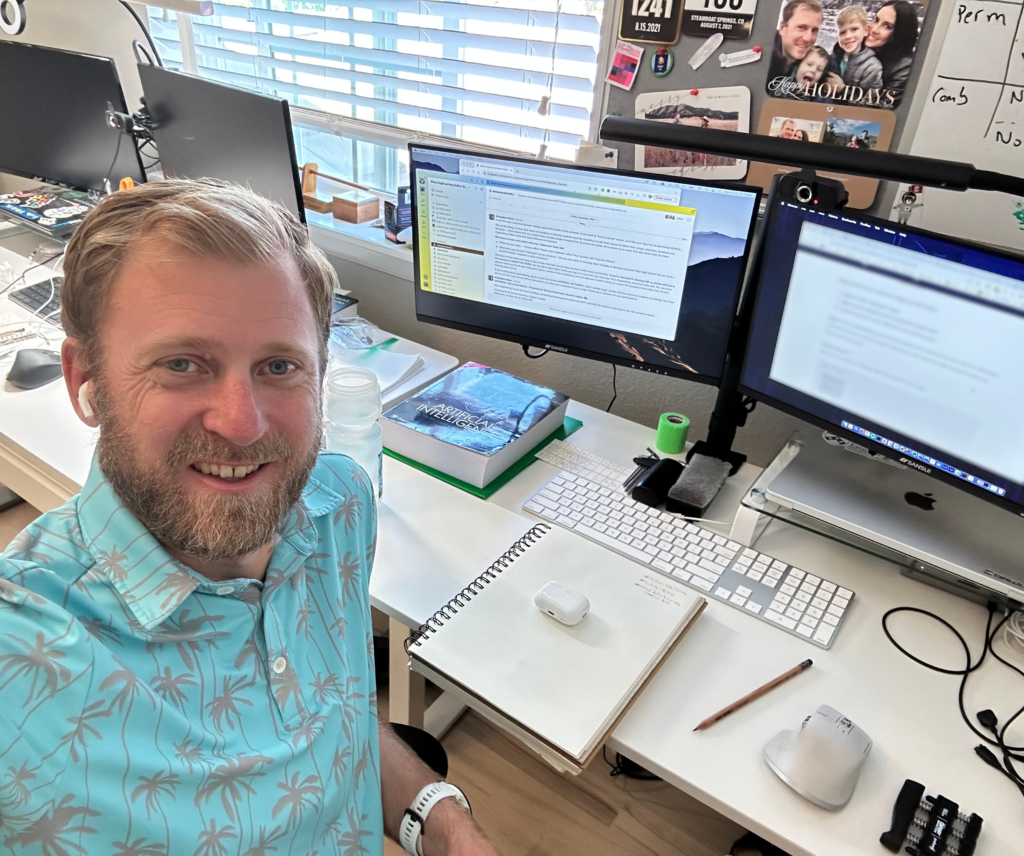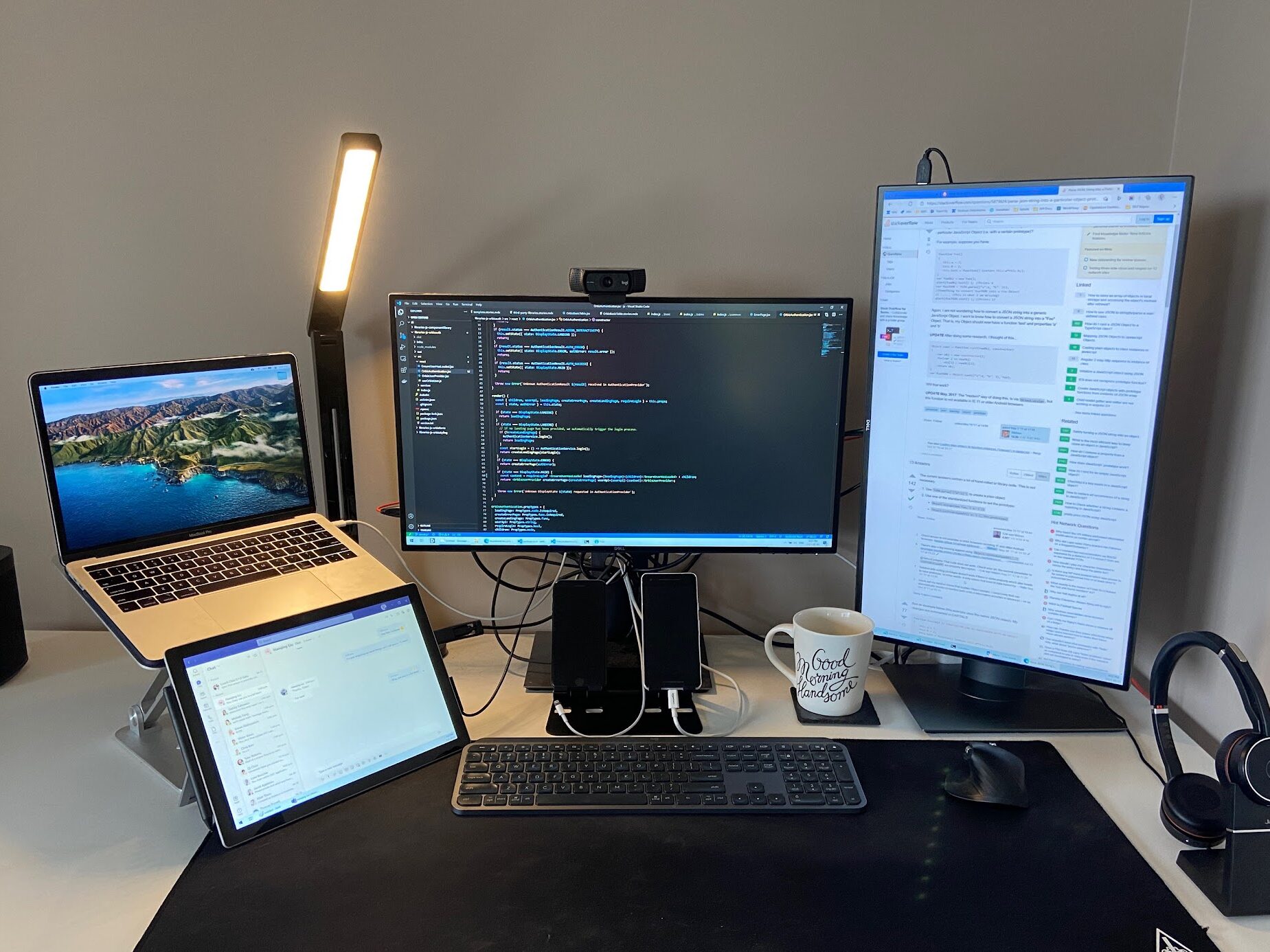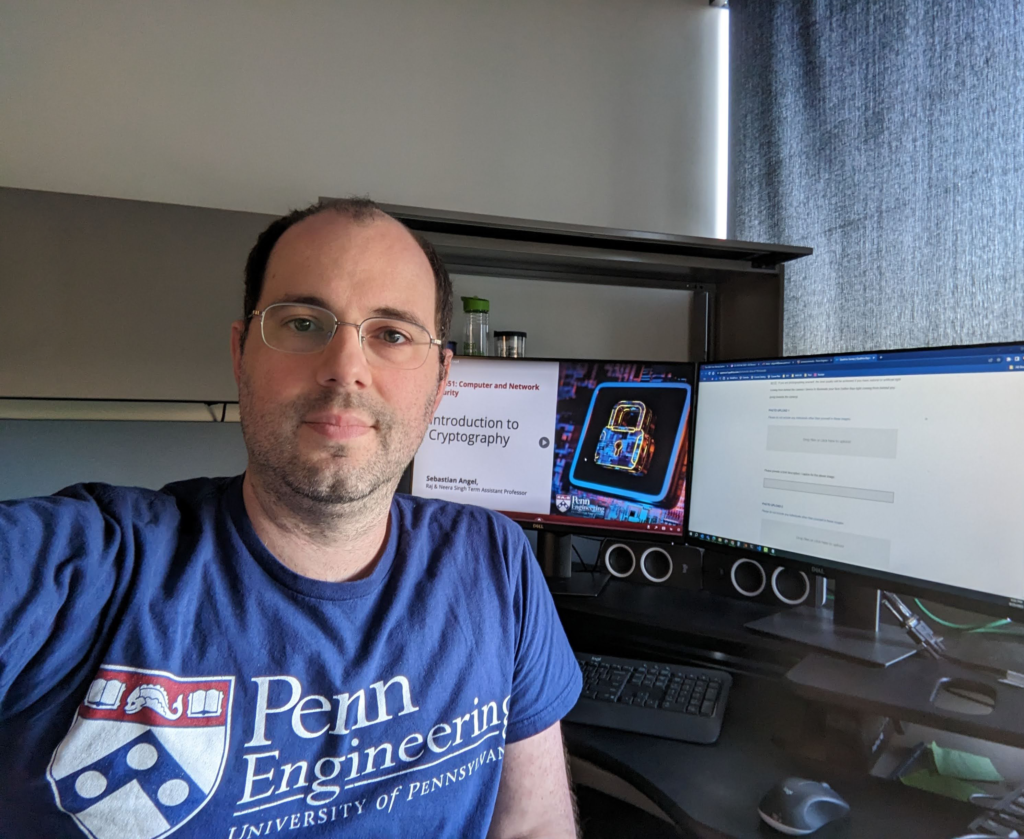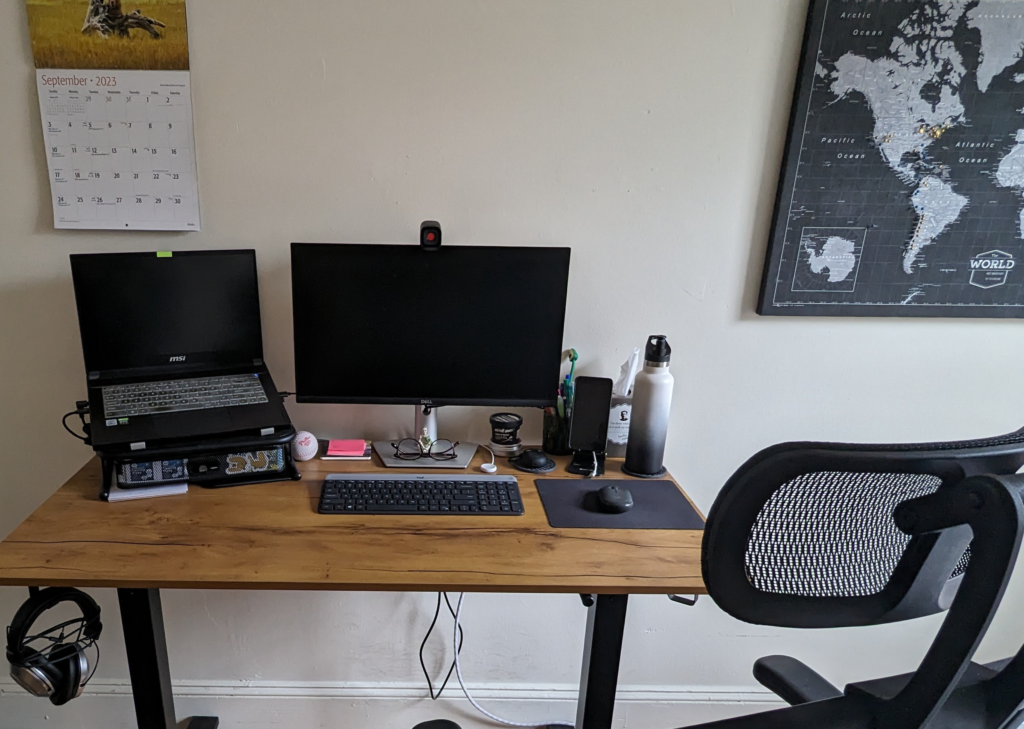The Penn Engineering Online Classroom
For online Masters of Computer and Information Technology (MCIT Online) students and online Masters of Science in Engineering in Data Science (MSE-DS Online) students, back to school does not mean a physical return to campus. Instead, students will log on and attend class from wherever they are in the world, adapting the asynchronous course delivery to any time zone or schedule that best suits them. For all of these reasons, the Penn Engineering Online “classroom” looks a little different for each student, depending on where they are studying from and how online learning fits best into their lifestyle.
There is no-one better than the students themselves to provide insight into the many iterations of the Penn Engineering Online “classroom” that exist around the globe. Graduate students in the MCIT Online and MSE-DS Online programs were asked to share a bit more about what their “classroom” is like, as well as any strategies they can recommend for establishing a space that is conducive to online learning.
Many students shared similar remote classroom features such as standing desks, laptops with large monitors, scratch pads, bluetooth accessories (keyboards and mouses) and blue-light lenses. Others shared more unique recommendations, including post-it notes, fidget toys, whiteboards, ergonomic chairs – even lava lamps!
Continue below to learn more about how Penn Engineering Online students set themselves up to thrive in a remote classroom setting.
How to Set Up a Successful “Classroom”:
“When you first start, try and learn what setup works best for you. What allows you to concentrate the most without distractions? What fits into your schedule the best? Try going to a public cafe, or library, and see how it compares to working from your room / office. If you figure this out early on, you can avoid experiencing low-quality study sessions when your workload picks up. It also will help you develop a good study routine for the semester and beyond.”
— Eric Waters, Fall 2022 Cohort, Cambridge MA, USA
“I study at home. Home is quiet and has nice windows looking at nature. I [also] watch class videos while waiting for my clothes at the self-service laundry. “
— Francisco José Urra Quiroz, Fall 2020 Cohort, Fontenay-aux-Roses, FR
“On the weekends I prefer to go to my favourite coffee shop to have dedicated study time, using just my MacBook and a set of headphones.”
— Timo Vink, Fall 2023 Cohort, Vancouver, CAN
“A lot of the time I just have my phone and a pair of earbuds, so I can watch lectures when I am going out to eat or getting coffee by myself.
I always take my proctored exams in my office with the desktop computer. I also have a personal laptop that I use in other rooms of the house and on the patio. This ensures I am able to keep learning whenever I have time, wherever I happen to be.”
— Stephen Miller, Spring 2022 Cohort, Jackson TN, USA
“I have lived in three different places and worked two different jobs. I think the relevant answer to “Where do you study?” is — anywhere I can. I have been on the couch at 4:00 AM trying to write code before work. I have been watching lectures or reading textbooks on the train to/from work. I have worked through lunch at work. I have done work on planes when I travel for work, hotel rooms — the works.”
— Shamus Clifford, Fall 2021 Cohort, Weymouth MA, USA
“I never work in random locations as I leverage a large monitor (or double screen) to take notes on one side and watch videos on the other OR have homework on one side and class content on the other.
My accessories are connected to my laptop via a dock so I can easily switch between my job and personal computers.
When I need to focus, I pre-fill my water jug and bring snacks so that I’m less tempted to get up.”
— Rachelle Perez, Fall 2021 Cohort, New York NY, USA
“Personally, I find it helpful to associate my home office space with productivity, but if that is not working, changing both the task and the location can help me regain focus.
Sometimes, I head to campus and study in one of the libraries, especially when I feel that I have too many distractions at home that can hinder my focus.”
— Daniela Garcia Romani, Spring 2022 Cohort, Philadelphia PA, USA
“My work station consists of a desk that can be raised to standing, two 21″ monitors and a Macbook Pro. However, that I spend a lot of time studying away from this office. My two kids frequently have sports practices and I spend at least five hours a week studying from my car.”
— Matt Dawley, Fall 2022 Cohort, Broomfield CO, USA
“A standing desk is a must-have for me because I don’t like to sit for too long.”
— Sharon Chen, Spring 2022 Cohort, New York, USA
“Get your chair right! If possible, don’t work on a small screen. Take breaks.”
— Joanne Crean, Fall 2019 Cohort, Dublin, IE
“If I am studying during the evening I turn on an orange lava lamp, as the warmer light adds a relaxing vibe to my room and makes it so I can fall asleep easier once I am done studying.
I also recommend having your apps readily available on your various devices. It’s very convenient to have Canvas, Slack, my Penn email, etc. all readily available on my phone, my laptop, and my work computer. This makes my schoolwork super accessible.”
— Eric Waters, Fall 2022 Cohort, Cambridge MA, USA
Strategies for Successful Online Learning:
“It’s really important to find time where you are not constantly interrupted. Find it however you can.”
— Stephen Miller, Spring 2022 Cohort, Jackson TN, USA
“Every moment is precious. Even if your week is full you can always squeeze in twenty minutes to watch two videos or read this week’s assignment. If you are a working professional, having a full afternoon free to study is almost impossible. Try to fit in your schedule twenty-minute units to advance on the material. At the end of the week, this makes a huge difference.”
— Alberto Rusconi, Fall 2020 Cohort, Paris, FR
“Get ahead of the coursework as early as possible to give you flexibility.”
— Benjamin Ruhlig, Fall 2022 Cohort, Houston TX, USA

“I’ve taken two courses each semester, so each semester is a little different. I usually flex my approach based on homework and exam deliverables.
I take all exams at my employer’s office on weekend mornings so that I can minimize distraction (from co-workers, kids, dogs, wife).”
— Matt Dawley, Fall 2022 Cohort, Broomfield CO, USA
“Plan your tasks for the week in advance, and then break them down into smaller tasks that you aim to complete each day. It is easy to feel overwhelmed, so this approach is crucial for maintaining everything under control each week.”
— Daniela Garcia Romani, Spring 2022 Cohort, Philadelphia PA, USA
“Start as early as possible and work on classwork everyday even if it’s a small portion.”
— Bryan Yang, Fall 2023 Cohort, Costa Mesa CA, USA
“Don’t procrastinate, during homework you may realize you need outside resources to understand a concept better or to go back to lectures or other class recordings. Every time I do homework rushed, I get deductions for resentable mistakes (e.g. minor algebra errors, misreading the problem).
If you have kids, plan to work when they are asleep or in school when possible.
Iterate on music until you have a playlist that gets you in focus mode and always go back to the same one.”
— Rachelle Perez, Fall 2021 Cohort, New York NY, USA
“I tend to get lectures out of the way very early to maximize the time I have for the assignments.
Set up a dedicated “study” account on your laptop (as a separate user), which doesn’t have access to games/chat/other that may distract you.”

— Timo Vink, Fall 2023 Cohort, Vancouver, CAN
“I always have my speaker playing music (unless I am watching lectures). I love having music on in the background as it helps me focus, but also makes the experience more enjoyable.
I am a morning person so I usually do the bulk of my work early Saturday / Sunday mornings, so that I can be done and enjoy the rest of the day. I also usually get McDonalds iced coffee to help me power through if I start feeling tired.”
— Eric Waters, Fall 2022 Cohort, Cambridge MA, USA
“Listen to the Andrew Huberman podcast episode on goal setting … Prioritize getting good sleep and exercise.”
— Joanne Crean, Fall 2019 Cohort, Dublin, IE
“Honestly, take a lot of breaks and try to enjoy life. Don’t stress too much about the course content or grades as you will overwhelm yourself.”
— Aaron Gee, Fall 2023 Cohort, New York NY, USA
“Pace yourself, set a schedule, and don’t feel bad for sticking to it. If you’re like me, with an asynchronous program like MCIT, it’s easy to feel like you should always be doing more schoolwork and working ahead. You don’t have to — make guilt-free time for yourself.”
— Jim Keena, Spring 2021 Cohort, Detroit MI, USA


